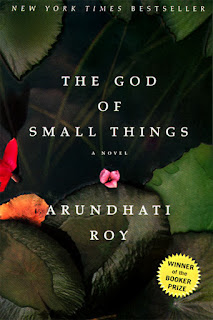When i was kid i used to read random books on great Indians. Those days UP board had 'Hamare Poorvaj' (Our ancestors) book in syllabi of class VI, VII and VIII to educate young students about our great ancestors, i am not sure whether this book still exists or consumed by the fire of skewed 'Secularism'; There were chapters on Shivaji, Hyder Ali, Chandbibi, Rani Durgawati, Rani Laxmibai, Bheeshm Pitamah, Shershah Suri, Guru Gobind Singh etc, well those days were different days. I first read about Shivaji in one of those books and since then i have become a great admirer of Shivaji.
'Shreeman Yogi' (originally written in Marathi) by Ranjit Desai is a great historic novel on the life of Shivaji Raje. It is mammoth in size and each of its 992 pages are drenched with the sacrifices of Raje and his people. When there was no independent Hindu kingdom south of Narmada and when the Hindus of India were persecuted in major part of the country and when their temples were desecrated as a matter of routine that time Shivaji Raje ignited the fire of resistance against the tyranny of Mughals and Adilshahi.
He was born in a rich and powerful family of Bhonsles and related to another powerful family of Jadhavs on maternal side but he and his mother were abandoned by Shahji Maharaj in the hostile estate of Pune under the guardianship of Dadoji Kond-dev. He learned the heard way under Dadoji and started dreaming about an independent state when he was barely in his teens. He started his remarkably ambitious mission by first conquering the Torana fort. He became the master of Sahyadri before his 30th birthday. He successfully countered the hostilities of Siddis, Mughals and Adilshahi and founded a solid Kingdom in western Maharashtra.
The books tells in details how Shivaji Raje built his team and filled them with the ambition of founding an independent state. The way he overpowered the treachery of Afzal Khan has become a subject of countless ballads. His chivalrous conduct with the most beautiful daughter-in-law of Subedar of Kalyan does not have any comparison. He did that in an age when women prisoner of war were either inducted in the harem of the conquerors or were sold in slave markets.
Mata Jijabai was the most brave and intelligent women of medieval India. Had there been no Mata Jijabai, certainly there would have been no Shivaji. She inculcated in him the feeling of independence and chivalry from his very childhood. The seed that was sown in the hostile land of Pune became a mighty Chhatrapati by 1674. Mata Jijabai died within a month after the coronation of Shivaji Raje in 1674.
As they say King is as great or bad as his followers and Shivaji had very loyal and brave followers - Yesaji Kank, Tanaji Malsure, Bajiprabhu Deshpande, Moropant, Anaji, Firgonji, Shiva Mahala, Jiva Nai, Prataprao to name a few.
The book covers in minute details the Purandar treaty with Mirja Raja
Jai Singh and the escape of Shivaji from Agra under the nose of barbaric
Aurangzeb. The General who was not defeated by even the most mighty generals like
Shaishta Khan or Afzal Kan, was undone by the family intrigues.
Highly Recommended (9/10)
















